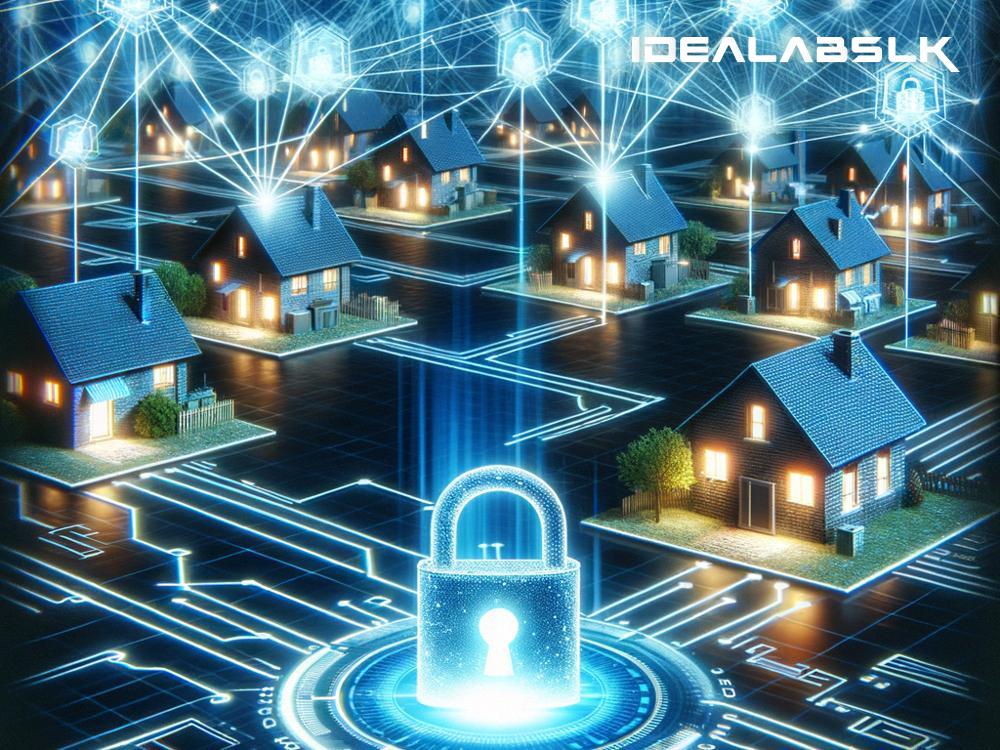Unlocking New Potential: How Blockchain is Revolutionizing Real Estate Escrow Efficiency
In the dynamic world of real estate, the escrow process has long been a critical, yet complex, step in buying and selling property. It acts as a safety net, ensuring that all parts of the deal are fair and transparent before any money and property change hands. However, traditional escrow practices often come with a host of challenges, including lengthy waiting times, high costs, and the ever-present risk of fraud. Enter blockchain technology, a game changer that's poised to revolutionize the way we handle real estate transactions, making them more efficient, secure, and user-friendly.
Simplifying Complex Processes
At its core, blockchain is a distributed ledger technology that allows data to be stored across a network of computers around the world, making it nearly impossible to hack or cheat the system. In the context of real estate escrow, this means transactions can be processed in a way that is completely transparent, secure, and efficient.
Imagine a world where buying a home doesn't involve a mountain of paperwork or weeks of waiting for various approvals. Blockchain technology can automate many of the steps involved in the escrow process, such as verifying the title, conducting property inspections, and ensuring compliance with local regulations. This not only speeds up transactions but also reduces the potential for human error, making the entire process smoother for both buyers and sellers.
Cutting Costs While Boosting Security
One of the most appealing aspects of using blockchain for real estate transactions is the potential for substantial cost savings. Traditional escrow services often involve multiple intermediaries, including banks, lawyers, and escrow companies, each of whom adds a layer of fees to the process. By streamlining transactions on the blockchain, many of these intermediaries can be bypassed, reducing the overall cost of buying or selling a property.
Furthermore, the security features of blockchain technology are especially relevant in the context of real estate transactions, which are typically high-value and thus attractive targets for fraudsters. The encrypted and immutable nature of blockchain ledgers means that once a transaction is recorded, it cannot be altered or tampered with, providing both parties with peace of mind that their deal is secure.
Enhancing Transparency and Trust
Transparency is another cornerstone of blockchain technology that lends itself well to real estate escrow. Every transaction on a blockchain is visible to all parties involved, ensuring that there are no hidden surprises along the way. This level of transparency fosters trust between buyers and sellers, as each can verify the progress of the transaction in real-time, from the initial agreement through to the final transfer of property and funds.
Moreover, the decentralized nature of blockchain means that no single entity has control over the entire system, further enhancing trust. In the traditional escrow process, parties must rely on third-party intermediaries to act as neutral facilitators. With blockchain, the technology itself ensures neutrality and fairness, eliminating potential conflicts of interest.
Navigating Challenges and Looking to the Future
Despite its potential, the adoption of blockchain technology in the real estate sector is not without challenges. Regulatory hurdles, the technical complexity of blockchain, and the need for widespread acceptance among industry stakeholders are significant barriers to overcome. Additionally, there's the task of ensuring that digital transactions are legally recognized and enforceable in different jurisdictions.
However, as technology continues to evolve and more success stories emerge, the benefits of blockchain for real estate escrow are becoming increasingly difficult to ignore. Innovative startups and forward-thinking companies are already exploring ways to integrate blockchain into their operations, signaling a shift towards more efficient, secure, and transparent real estate transactions.
In conclusion, while we may still be in the early stages of blockchain's application in the real estate sector, its potential to transform the escrow process is undeniable. By leveraging this technology, we can look forward to a future where real estate transactions are faster, less expensive, and more secure, benefiting buyers, sellers, and the industry as a whole. As blockchain continues to break down barriers, it's clear that its impact on real estate could be as profound as the invention of the internet itself - paving the way for a new era of efficiency and trust in one of the world's oldest industries.

